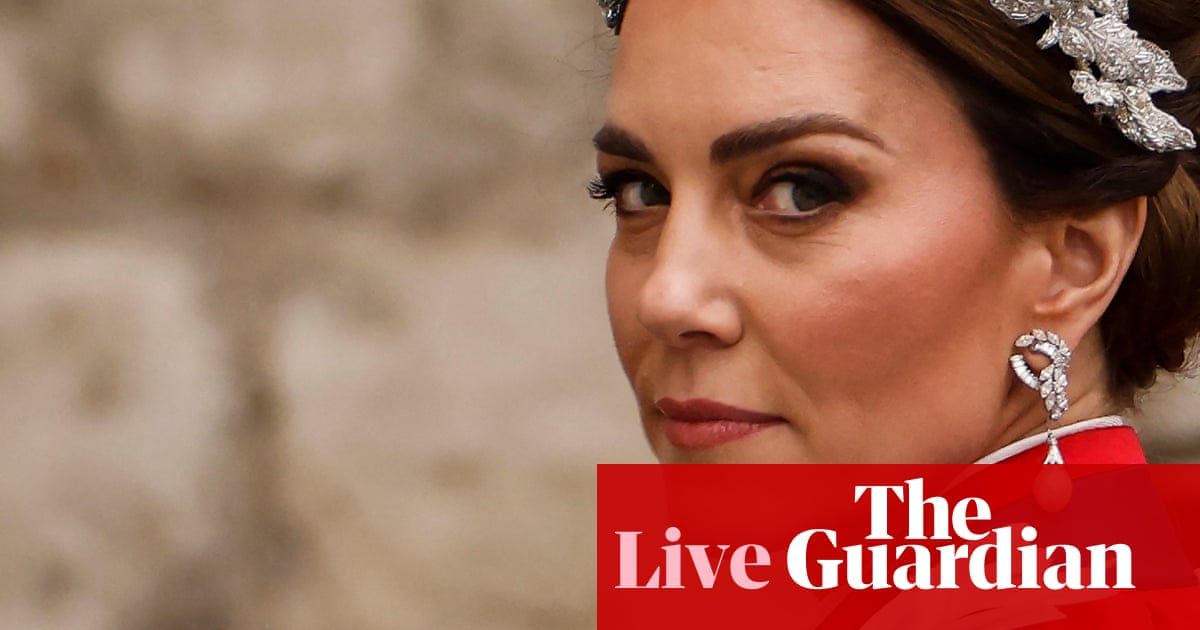
Essence, a melancholy yet feelgood anthem released last October by Wizkid, has belatedly emerged as one of the songs of 2021, gradually dominating global streaming charts – further aided by Justin Bieber’s patronage on a remix. But the track’s success is owed to a less familiar voice: the disarmingly immersive, coursing melodies of the chorus vocalist, the Nigerian singer, songwriter and producer Tems, AKA 26-year-old Temilade Openiyi.
Since 2018, local hits Mr Rebel, Try Me and the striking EP For Broken Ears have earned her prominence from within her country’s “alté” scene, an alternative music and fashion subculture that has both chafed against and flirted with the mainstream. Now, the stunning reach of Essence has been transformative. “I’m living in surprise – I just wake up and get surprised every day,” she says in a characteristically mellow voice on a video call from Lagos. The fandom of stars including Alicia Keys and Chris Brown on social media was topped only by bumping into Adele in LA. “She was singing Try Me and saying she’s heard me from Mr Rebel and I was like: what?”
Tems also appears on Certified Lover Boy, the Drake album that has topped the US and UK charts this month, on the song Fountains. “Insane, crazy,” she repeats in a loop, on her relationship with her countryman Wizkid, a “big brother” figure; and Drake, “someone that I listened to since I was a teenager. He was like, ‘Bruuuh, how – why – are you so good?’,” she says, in a solid impersonation. Another collaboration with him, likely on her forthcoming album, due next year, is in the works.
Amid the surprise of growing stardom, she is also circumspect. Her success has come on her own terms, resisting pressure to conform to the dominant, upbeat Afrobeats sound in Nigeria, or to recast herself in a more conventional light.
Openiyi was born in Lagos and moved to the UK with her British-Nigerian dad and Nigerian mum. After their divorce, she returned to Nigeria, where childhood in the sprawling commercial capital felt solitary, and writing songs and poems offered respite. “I used to write poems a lot – I’ll just sit down and write things I’m feeling, and it’ll come out so poetic, even if I’m just talking about breakfast,” she laughs. “So then I just started writing songs, at around 11. Some of them were about me not having friends, some of them were about my classmates saying I was weird. Some of it was just really sad. I didn’t really have much human interaction, but it helped me heal to be able to sing about what I was feeling.”
That sense of being an outcast continued into high school. “I just wasn’t popular; I cried a lot, I was very shy. I would cover my head with a blazer. I wouldn’t be able to talk – I just was a loner. And my only escape was the music room.” High school friendships blossomed later on, but the haven of the music room afforded hours to hone her sound, improvising songs from artists she loved – Kate Nash, Lauryn Hill, Lil’ Kim, Paramore, OutKast and Green Day – and driving a sense of boundlessness. That multiplicity is now heard in her songs, which layer various intonations of her own voice, creating a patchwork of self.
In her previous EP, For Broken Ears, she grappled for relief from toxic relationships and depression. “Behind my mind it runs, all these thoughts have troubled me,” she sings on Free Mind, where over her own unreeling harmonies and soft echoes of her speech, she punctuates verses with a rap-like delivery, determined to “find release”. Her latest EP, If Orange Was a Place, feels lighter and more at peace. “I think this one is more fun,” she says. “After I healed, I let everything go and I started to live, I started to enjoy life. And this is what that EP is. It’s like a sequel. After healing comes life, comes fun, comes vibes, comes dancing.”
In a break from the past, she produced none of the EP’s tracks, instead enlisting Ghanaian DJ and producer GuiltyBeatz – a change which she says “felt weird”, but also reflects a coming of age. She’s one of the few known women producers in Nigeria, a result of not being able to afford beats when she came out of university, and also struggles getting established producers to accept her choices. “I started producing as a rebellion. It was me being like: you know what, everybody is just being stuck up, treating me like a dumb person. OK, no problem, I’ll go and make beats and you will not be able to tell me shit in the studio.” Now, things have changed. An initial promise to herself to always produce her own work ended when she realised, “I’m actually not the best producer in the world,” she laughs.
As she’s become established, those struggles have relaxed into ease and satisfaction. “It helps now, it gives me so much more freedom,” she says of working with producers. “I’m learning to let go.”
If Orange Was a Place is out now on RCA/Since ’93












